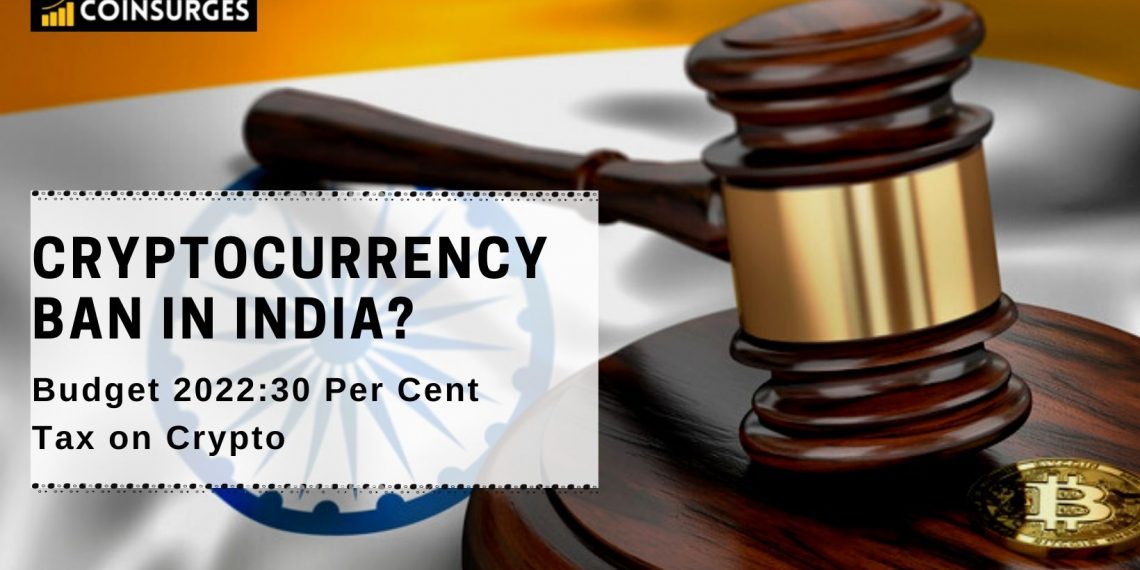The cryptocurrency standard was declared by the introduction of Bitcoin in 2008, motivating a brand-new technology and social change. Cryptocurrency in India first came into notice in 2013 when a restaurant announced to accept it as the mode of payment. In the same year, it was made accessible for to buy and sell Bitcoin as crypto in India. Enter: year 2016 when a the Indian government decided to regulate and ban the buying and selling of cryptocurrency in India. Over the last few years, the government’s stand regarding crypto in India has seen a massive shift. In January 2021, the government stated that it will introduce a bill to create a sovereign digital currency, and ban all private cryptocurrencies. Crypto ban India came as a disheartening news for the industry that was just seeing a scope for a massive bloom in a country like India.
In 2022 budget announcement, Finance Minister Nirmala Sitharaman announced taxes on crypto gains at a flat rate of 30 per cent and the provision of tax deducted at source at 1 per cent levied on payments made on transfer of digital assets. So does that mean that the Indian government just legalized cryptocurrency in India? The best answer on the future of crypto in India would be that virtual assets like cryptos may not be banned in India, but treated as another asset class. The government defines virtual assets as any instrument, generated through cryptographic means providing a digital representation. In simple words, it includes all private crypto in India and around the globe. For a new asset class like crypto, it is a good thing to be regulated on a tax base of 30% as taxes on crypto gains.
Cryptocurrency prices in India today. Get live prices, ranking, and trading volume of the top cryptocurrencies – Stellar Price Today ,Bitcoin Price, Ethereum Price, Shiba Inu price, Dogecoin, Nidhi DAO Price and Solana Price today.
The government also announced no deduction in respect of any expenditure or allowance to be allowed while computing income gained from cryptocurrency in India, except the cost of acquisition. Further, the buyer shall be liable to withhold tax on payments in the form of capital gain tax in India made for the purchase of such asset at the rate of 1 per cent as withholding tax. To encourage the use of crypto in India, the finance minister also announced that the central bank will introduce a digital currency in the next financial year using blockchain and other supporting technology.
Let us Clear the Air on the Crypto Ban in India
The budget announcement for the year 2022 has cleared the air about the ban of cryptocurrency in India and currently there is no regulation or any ban on the use of crypto in India. True, the 30% taxation is punitive tax, a harsh levy that could discourage many in dealing in such assets. But, for an industry which was fearing a countrywide ban at one point, permission to exist even with a taxation rate is a blessing. Adding to the good news, by recognising crypto as a taxable asset, the government has acknowledged its existence along with other virtual assets. Secondly, by doing so, the government has also ignored the repeated public warnings by the RBI on free crypto coins. Not just that, the proliferation of private cryptocurrencies across the globe has sensitised regulators and governments to the associated risks of gift tax in India.
The announcement comes as other major economies move forward with their own plans to launch virtual versions of their own currencies. Cash-dependent India joins countries including China in pushing forward with digital versions of their currencies as they look to harness new technologies to make transactions more efficient. The country’s crypto ecosystem had several demands, including a classification of cryptocurrencies, clarity on taxation, and a self-regulatory framework shaped by the industry. Now that there’s clarity on what is tax and the status of gift tax in India, the formal classification of cryptocurrency is awaited.
Understanding Capital Gain Tax in India
The government will receive a huge boost to its direct and indirect tax collections with clear guidelines on the taxation of crypto in India. These instances suggest that the Government is definitely looking for ways to address the concerns regarding the taxation, classification, free crypto coins, and regulations in the upcoming budget plan. Furthermore, government officials are considering crafting a cryptocurrency framework with a view to establishing global standards and recognising the value of digital assets. We believe this is a positive approach as cryptocurrency is an emerging asset.
The financial year 2021-2022 had been quite an eventful year for the blockchain and crypto industry, especially in terms of regulating the industry. The clarity on capital gain tax in India will not only help in building investor confidence and provide clarity on which crypto to buy today in India but also enable crypto exchanges to contribute to the country’s economy. TDS/TCS on sale and purchase of cryptocurrency in India will also help in accurate reporting of crypto transactions to tax authorities.
Being the youngest nation with huge startup projects growth, India is likely to emerge as a big player in the crypto market.Being the youngest nation with huge startup projects growth, India is likely to emerge as a big player in the crypto market and set off of business loss.ws in India and globally.Get in touch with Coinsurges for the latest cryptocurrency news ,live crypto price and know about related what is Metaverse crypto.







Comments 0